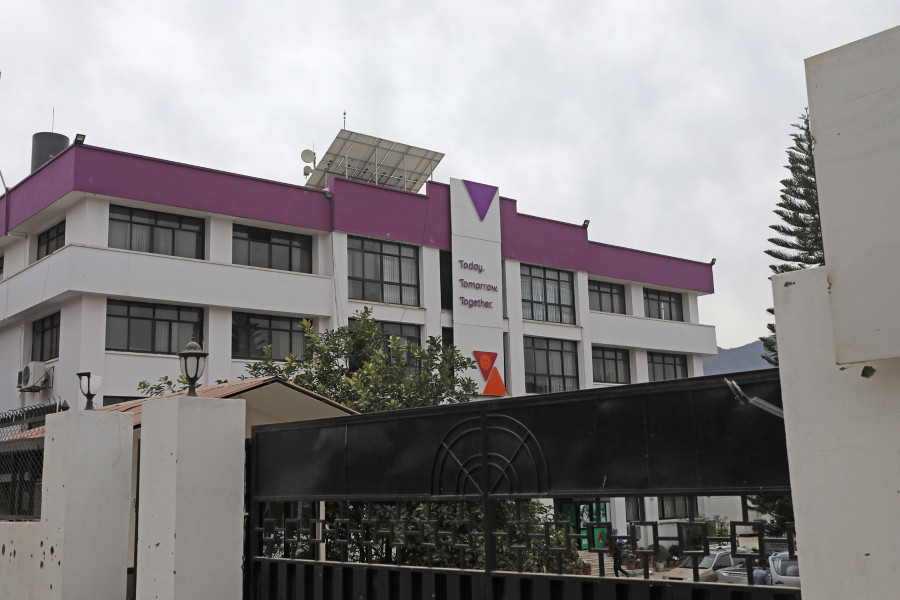Money
Ncell to pay all outstanding dues by May, tax authority says
After paying Rs4.5 billion in December last year, the company is supposed to pay around Rs19 billion in tax dues and interest.
Prithvi Man Shrestha
Ncell, a privately owned telecommunications company, has submitted a plan to clear all its dues related to outstanding capital gain tax by May, according to the Large Taxpayers’ Office.
On December 30 last year, the telecom company made a partial payment of Rs4.5 billion to the tax authority after the Large Taxpayers’ Office determined its outstanding dues at Rs22.44 billion, including interest.
After the Supreme Court on November 21 determined the tax to be paid by Ncell at Rs21.1 billion—regarding the four-year-old buyout deal in which Ncell’s majority stake was purchased by Malaysia's Axiata from Swedish Norwegian company Teliasonera. The tax authority had issued a notice in the name of Ncell asking the company to pay off the dues.
“When Ncell paid the first instalment of tax dues in December last year, we had asked it to submit the timeline for paying their outstanding tax dues on an installment basis within the current fiscal year,” said Jhalakram Adhikari, chief of the Large Taxpayers’ Office. “The company has recently submitted the payment plan as per which, it will pay Rs6 billion in March, another Rs6 billion in April and the rest of the outstanding dues in May.”
A senior Ncell official, however, declined to comment on the matter, when reached by the Post.
According to the tax authority, Ncell is entitled to pay more than Rs19 billion, including 15 percent interest, on top of the actual tax liability. As per section 110 of the Income Tax Act, the company was allowed to pay the dues on an installment basis. As per section 110 (A) of the Income Tax Act, the tax officer can provide the facility of paying outstanding tax on an instalment basis, if the taxpayer makes a written request for such a facility before the tax office files a case in court against such taxpayer.
If all the outstanding dues are cleared, it will help the government to reduce its revenue deficit for the current financial year. As of first half of the current fiscal year, the government is running a revenue deficit of around Rs90 billion against the target.
The company paid the first instalment of tax at a time when the Nepal Telecommunications Authority on December 18 had decided to grant residue spectrum of 1800 megahertz band to Ncell, in an auction. But, on the condition that it clears all its outstanding tax dues.
The decision of the authority to allow Ncell in the auction despite its tax dues had generated controversy. Spectrum is an important resource in the telecommunications sector without which operators cannot start wireless mobile services.
Before the company paid the first instalment of outstanding dues in December last year, there was confusion over whether the company would indeed pay the amount after the International Centre for Settlement of Investment Disputes on December 18 issued a provisional order barring Nepal’s tax authority to recover its outstanding dues from Ncell. International Centre for Settlement of Investment Disputes is the World Bank’s dispute settlement body on international investment.
“But Ncell appears to have decided to pay the tax dues despite the order of international tribunal in order to use the spectrum it had won in a bid,” said a lawyer who didn’t want to be named.
Ncell, along with Axiata (UK), the owner of the Ncell, had filed an application in April, at the global investment settlement body, claiming that Nepal’s conduct in relation to capital gains tax imposed on the mobile company is against the Bilateral Investment Treaty between Nepal and the United Kingdom.
Meanwhile, the International Centre for Settlement of Investment Disputes announced on January 27 that its tribunal had issued procedural Order No. 2 concerning the procedural calendar. The arbitrator body has not disclosed dates of the procedural calendar.
Semanta Dahal, a corporate lawyer who is keenly observing the Ncell case, said that procedural calendar incorporates the dates of making legal claims and counterclaims.
“As the case is proceeding in the international tribunal, the government should not just be content with getting the payment from the Ncell,” he said. “Otherwise, it will be in a difficult position, especially if the tribunal gives a verdict in favour of Axiata and Ncell as a result of the government's inaction.”
He said that the government would not get another international body to appeal the verdict, if the tribunal’s ruling went against the government.




 14.24°C Kathmandu
14.24°C Kathmandu















